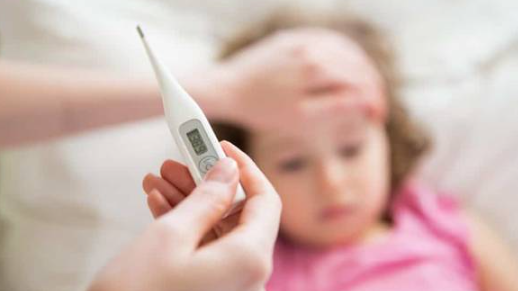Seasonal flu and flu-like syndromes: increasing incidence.
In Italy, the activity of epidemiological surveillance of Influenza Like Illness ("ILI") syndromes and serious and severe cases of influenza is coordinated by the Department of Infectious Diseases (DMI) of the Istituto Superiore di Sanità (ISS), thanks to the contribution of general practitioners, pediatricians, hospital physicians and contacts at the ASLs and Regions. According to the data described in the Epidemiological Report "RespiVirNet," which presents national and regional results regarding the epidemiological surveillance of influenza-like syndromes. To date there are incidence values of 17.5 cases per thousand treated, affecting the children and elderly in particular. However, despite the urgency of the issue, Italy continues to face low vaccination coverage, especially among the groups most susceptible to complications of the disease, namely the over-65s and frail patients.

In the collective imagination, seasonal influenza represents an inescapable event whose health and social impact has, since time immemorial, been largely underestimated. In contrast, influenza is one of the most important Public Health problems as well as a significant source of direct and indirect costs for the implementation of control measures and case management as well as the complications that follow the disease.
Influenza syndrome, in fact, exerts an important epidemiological, social and economic impact in industrialized countries: due to its morbidity, it is a frequent reason for medical consultation and hospitalization; it is the leading cause of morbidity when considering absences from work or school; and it is, even today, the third leading cause of mortality from infectious diseases, preceded only by AIDS and tuberculosis.
According to the World Health Organization (WHO), the average frequency with which cases of influenza occur each year, while varying from season to season, is 9% (range: 4-15%) in the general population, with average incidence values of 26% (12-40%) in the 0-14 age group. In fact, certain population groups, such as children and the elderly, are at higher risk of severe influenza complications, such as pneumonia or worsening of subordinate and/or concurrent clinical and medical conditions (sometimes even resulting in death). In this regard, influenza-related deaths can be estimated to range from 290,000 to 600,000 worldwide, while according to the European Centre for Disease Prevention and Control (ECDC) in Europe each year from 4 to 50 million people contract symptomatic influenza with numbers ranging from 15,000 to 70,000 related deaths. In Italy alone, 5 to 8 million people are affected by influenza syndrome annually, the impact of which in terms of lethality translates to an estimated 8,000 deaths/year. Ninety percent of deaths occur in individuals over 65 years of age, especially among those with underlying chronic medical conditions.

Anti-influenza vaccination embodies the best preventive strategy to reduce the epidemiological, clinical, and economic impact of the disease; nevertheless, in Italy, there was a drop in influenza vaccination in 2022-2023, especially in the most at-risk populations: the over-65s and the infirm aged 60 and over.
To meet the 2023-2024 flu vaccine campaign and given the needs defined by the ASLs and Hospital Boards, the Region of Sardinia acquired more than 450,000 doses of flu vaccines, diversified by target types as defined by the Ministry of Health Circular. Given the coverage values recorded for the 2022/2023 season (<40%) and given the coverage targets indicated by the Ministry of Health (75% minimum achievable target, 95% optimal target), the regional indications urged the Companies to put in place appropriate organizational and information and communication strategies aimed at achieving the much sought-after health objectives. As in previous years, to ensure the efficiency and effectiveness of the campaign, General Practitioners and Pediatricians have been involved; their activities, together with those carried out by the SISPs' vaccination clinics, make it possible to reach the target population in a capillary manner.
The flu campaign, which is being carried out in conjunction with the autumn and winter SARS-CoV-2 vaccination campaign (from Oct. 02, 2023), provides for vaccinations to be administered in SISP vaccination centres, along with other active vaccination points such as hospital hubs.
Healthcare facilities are also providing for the vaccination of frail patients in their care through "active call," and are vaccinating their own health and social care personnel, medical students, health professions students doing internships in their facilities, and all health and social care personnel in training.

Despite the active call together with the operational machine set in motion to combat influenza and its sequelae, to date the incidence is 17.5 cases per thousand with greater prevalence in children (incidence of 48.7 cases per thousand in children under five)..

According to virological surveillance data, influenza viruses are now prevalent, although there remains a significant proportion of Sars-CoV-2 and respiratory syncytial virus, which causes bronchiolitis especially in very young children.
Moreover, as shown in the graph in the figure, in the fifty-second week of 2023 the epidemic curve of influenza-like syndromes shows an incidence value never reached in previous seasons, demonstrating the importance and constant need for vaccination prevention..
The decalogue.
In the light of this alarming evidence, Italy's leading experts in geriatrics, hygiene and public and private health have come together in a round table, with the aim of examining the problem and showing how the lessons learnt from the vaccination campaigns against COVID-19, as well as the evidence on the efficacy of enhanced flu vaccines for the over-65s can tangibly help public decision-makers, at various levels, to introduce bureaucratic, administrative, communication and logistical solutions to broaden the audience of citizens - at least the elderly and frail - to whom the most appropriate and cost-effective vaccination tool will be concretely offered in the next influenza seasons. Thus, a Position Paper was published on 11 October 2023 in order to improve influenza vaccination coverage rates.
The unprecedented plunge in influenza vaccination coverage, and the consequent impact of influenza epidemics, especially on the elderly and frail population, means that incisive interventions by public decision-makers at different levels - ministerial, regional and local authority leaders - can no longer be postponed if this trend of sudden decline in influenza vaccination is to be reversed.
As established by the World Health Organisation (WHO) PanFlu 2021-2023, it is necessary to invest in the preparedness and readiness of Member States for influenza pandemic scenarios.
Vaccination is the most effective tool to prevent and counteract the mortality and morbidity burden of influenza, both because it significantly reduces the likelihood of contracting the disease and because, if influenza symptoms do develop, they are much less severe and generally not followed by further complications.
The objective set by the WHO has also been incorporated into Italian legislation (National Prevention Plan 2020-2025 in the annex) which, in defining the roles and responsibilities of the National Health Service and of all the actors involved, aims to protect the population with appropriate vaccines and to reduce the 'burden' of influenza as much as possible, i.e. the burden of disease in terms of inappropriate use of drugs, hospitalizations, cost to the health system, etc. It should also be noted that the heaviest influenza seasons lead to a wider inappropriate use of antibiotics, which contributes to aggravating the phenomenon of antibiotic resistance.
One of the main causes of the collapse in influenza vaccination coverage, and the consequent negative impact on the population, is described as the strong territorial dishomogeneity that permeates the entire process culminating in the actual administration of the vaccine: from procurement to the distribution of doses. In fact, in the absence of centrally defined standards and uniform information systems, leading to a single organisation and management of the vaccination campaigns, problems of delays, unavailability of doses - or at least of all the necessary doses of the most appropriate vaccine for the various population groups - and ultimately a lack of equity in access to vaccination for all citizens are recorded in the various Italian regions.
To this end, in brief, the Board of Experts has drawn up ten recommendations for healthcare decision-makers, listed below, which users can explore in more detail in the influenza section of our website 'Prevention and Control of Flu Syndromes'
- Timely Ministerial Circular;
- Appropriate vaccines for the elderly and frail in the 'standard' of regional tenders;
- Deadlines and requirements on the PNRR model;
- Greater control powers to the DG Prevention of the Ministry of Health;
- End to the Irrational Use of Vaccines;
- Timely communication;
- Targeted communication;
- Focus on territorial 'outposts';
- Extend and 'ad hoc' remunerate the health act of administration;
- Verification of vaccine outcomes.

In this context, Vaccinarsinsardegna.org would like to reiterate once again, and especially in this critical moment in history, the importance of vaccination for the prevention of seasonal flu and its related sequelae, recommending even more conscious and shared adherence. The entire population is reminded that, although the peak has been reached, there is still a long tail that could last until March. If you have not had the opportunity to get vaccinated, you are still in time to do so, and if you need any information or clarification, the virtual counselling service on Vaccinarsinsardegna.org is constantly available in the 'Contact us' section, which can be accessed through the link https://www.vaccinarsinsardegna.org/en/contact-us.
Stay connected to our site so as not to miss the next updates.



